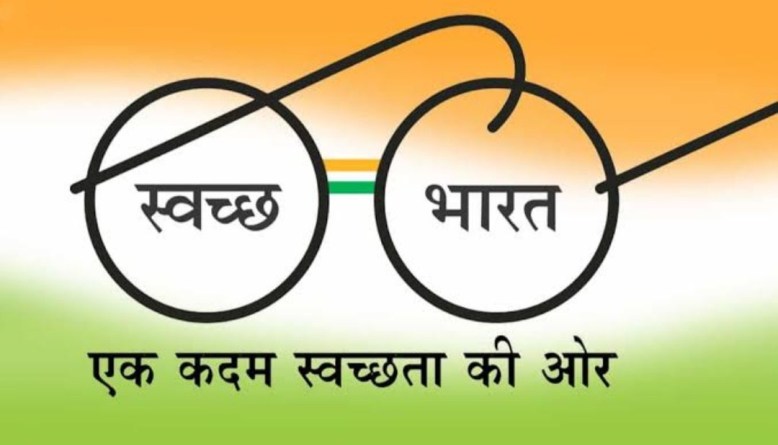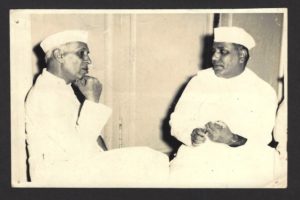Sandeep Pandey
Mahatma Gandhi’s spectacles are being used as an emblem for Government of India’s sanitation campaign Swachh Bharat Abhiyan (SBA). Even though Rashtriya Swayamsewak Sangh, the ideological parent of ruling Bhartiya Janata Party, abhors Gandhi’s ideology, yet Narendra Modi has decided to use Gandhi as a symbol for his drive for cleanliness. First, he knows that Gandhi is the only truly mass leader that India has produced in recent times who holds national as well as international appeal. Second, he probably does not want people to remember Gandhi for his other ideas like truth, non-violence, Swadeshi or communal harmony because they are antithetical to his and his organisation’s thinking. It would be much convenient for his brand of politics if future generations of Indians were to associate Gandhi only with the sanitation programme and none of his other ideals.
But even as regards sanitation, Modi is making a mockery of Gandhi’s views on this. For Gandhi sanitation was not just picking up a broom and cleaning for a photo opportunity, which is what SBA has been reduced to. When a new person would come to Gandhi’s ashrams with a desire to work with him, the first thing s(he) would be required to do was to clean a toilet. This was Gandhi’s way of testing people’s resolve and commitment to social or public cause. Gandhi closely identified himself with the community of sanitation workers and even said that in his future birth, he would like to be born in that community.
The people who are engaged in cleaning of human excreta are called manual scavengers. This practice is a blot on the name of humanity. According to the Socio-Economic Caste Census 2011, 1,80,657 households earn their livelihood through manual scavenging. However, this number is actually much higher because the government’s definition of manual scavengers doesn’t include sanitation workers cleaning sewer lines, septic tanks or railway tracks. The ‘Employment of Manual Scavengers and Construction of Dry Latrines (Prohibition) Act, 1993’ did not see a single case being registered and therefore ‘The Prohibition of Employment as Manual Scavengers and their Rehabilitation Act, 2013’ was promulgated twenty years later. But the result is no better.
Under the Swachh Bharat Abhiyan Gramin, 9.16 crores toilets have been constructed during the last five years which has increased the sanitation coverage from 38.7% to 98% during this period. India’s 601 districts out of 752 and 5,50,151 villages out of 6,40,867 have been declared open defecation free. The above statistics would have created a real problem for us if they were true. Firstly, we would require an equally huge number of manual scavengers to clean the soak pits in which the human excreta gets stored underground when they are filled. Secondly, the soak pit design in areas of the country like Uttar Pradesh and Bihar, where the water table is very high, especially in rural areas where these toilets have mainly been built, would have posed a threat of contamination of ground water. Both these problems have not emerged on a big scale, indicating either that the toilets have not been constructed on the scale mentioned by the government due to corruption, or that the toilets are not being used because of faulty or incomplete construction.
Not once during the Swacch Bharat Abhiyan do we find a mention of manual scavengers or their problems, all of whom incidentally come from a particular caste called Valmiki in North India, which belongs to the Dalit community. Prime Minister Narendra Modi famously washed the feet of five sanitation workers on 24 February, 2019 during the Ardh Kumbh at Prayagraj as a mark of respect for their contribution to ensuring cleanliness during the month and a half long event. However, the need to undertake this exercise probably arose because there was a protest going on of sanitation workers during the event itself, demanding minimum wages and better working conditions. A well known activist-poet from Allahabad, Anshu Malviya, was arrested on 8 February by the Police Crime Branch and threatened with imposition of National Security Act on him because he was at the forefront of organising the sanitation workers. After a protest by activists and sanitation workers, he was finally released after midnight from a local police station. Sanitation workers were getting Rs 295 per day as daily wages whereas they were demanding Rs 600, in accordance with the monthly minimum wage of Rs 18,000 being demanded by national level trade unions.
Meanwhile, sanitation workers continue to die while inside sewer lines and septic tanks. The Ministry of Social Justice and Empowerment informed the Lok Sabha in 2017 that 300 deaths by asphyxiation had taken place that year of workers involved in underground cleaning operations. On November 10, 2018, Dinesh Paswan and Vikas Paswan died in an accident inside a sewer line in Chowkaghat locality of Varanasi while Satyendra Paswan suffered a leg fracture. The district administration and the government did not take responsibility and instead the contractor Pankaj Srivastava was made to pay the compensation. The police only filed an accident case at the Chetganj Police Station, and not under the 2013 Act. On June 15, 2019, seven workers died inside a septic tank of a hotel, 30 kms from Vadodara in Gujarat, but again no case was registered under the 2013 Act. Had the cases been registered under ‘The Prohibition of Employment as Manual Scavengers and their Rehabilitation Act, 2013’, family members of the deceased or the survivor would have been rehabilitated in an alternative occupation.
The act of Narendra Modi washing the feet of sanitation workers overwhelmed and pushed into the background the basic demands of sanitation workers—a respectable income, safe working conditions, education for their children, health care for their families, an insurance against accidents and solution to health hazards faced by manual scavengers.
Mahatma Gandhi was opposed to machinery. But one machine that he would not have opposed would have been a machine to clean sewer lines and septic tanks, as it would have liberated the manual scavengers from an ignominious plight. It is a shame that we have machines in the modern world which can perform surgery without cutting open the human body, but we don’t have readily available machines to clean the sewers and septic tanks.
(Sandeep Pandey is a social activist.)




